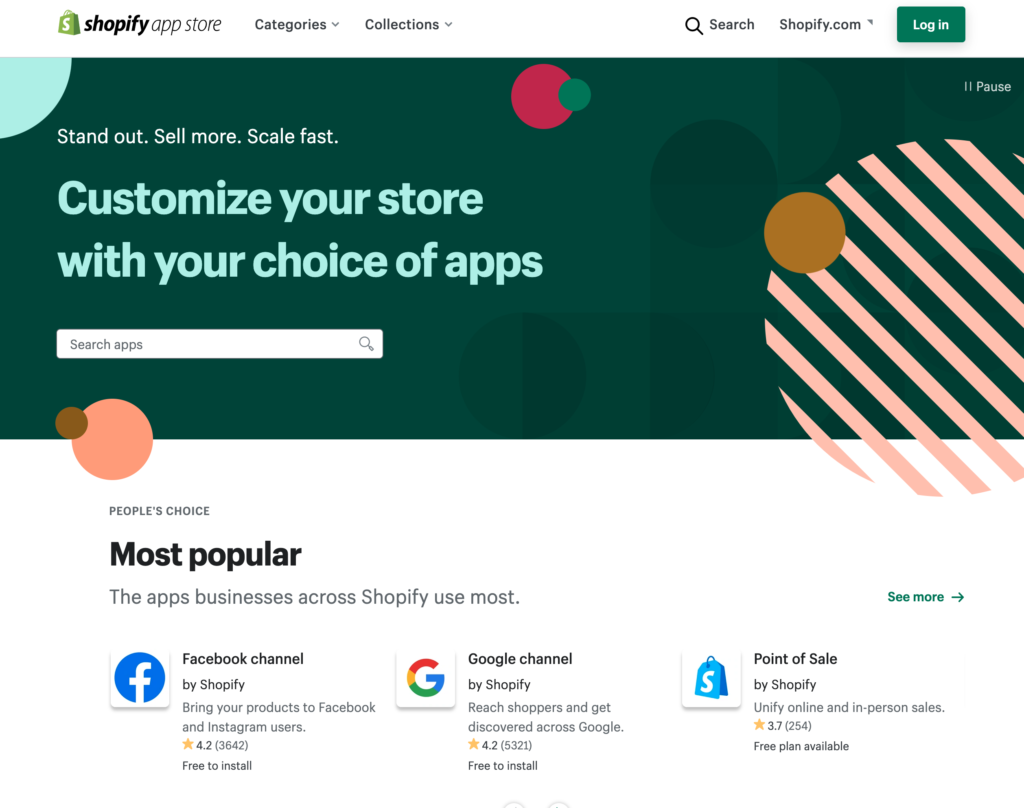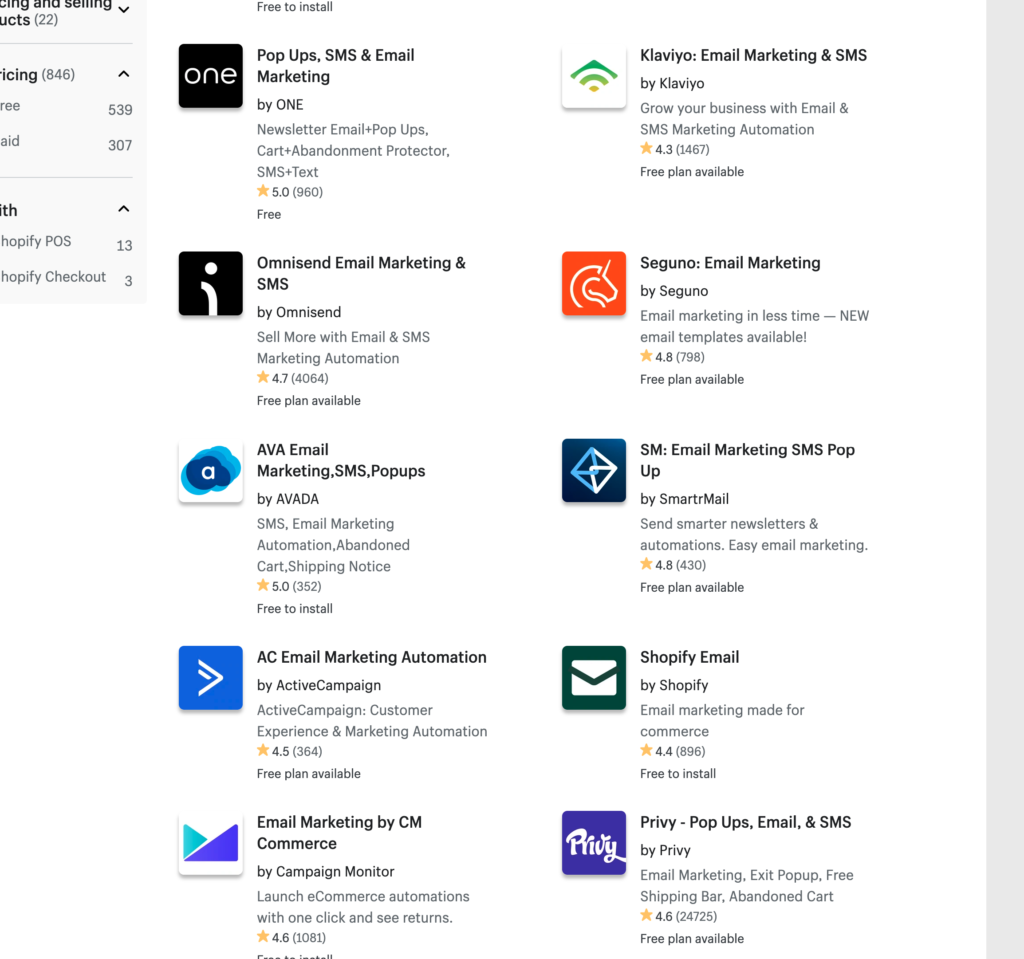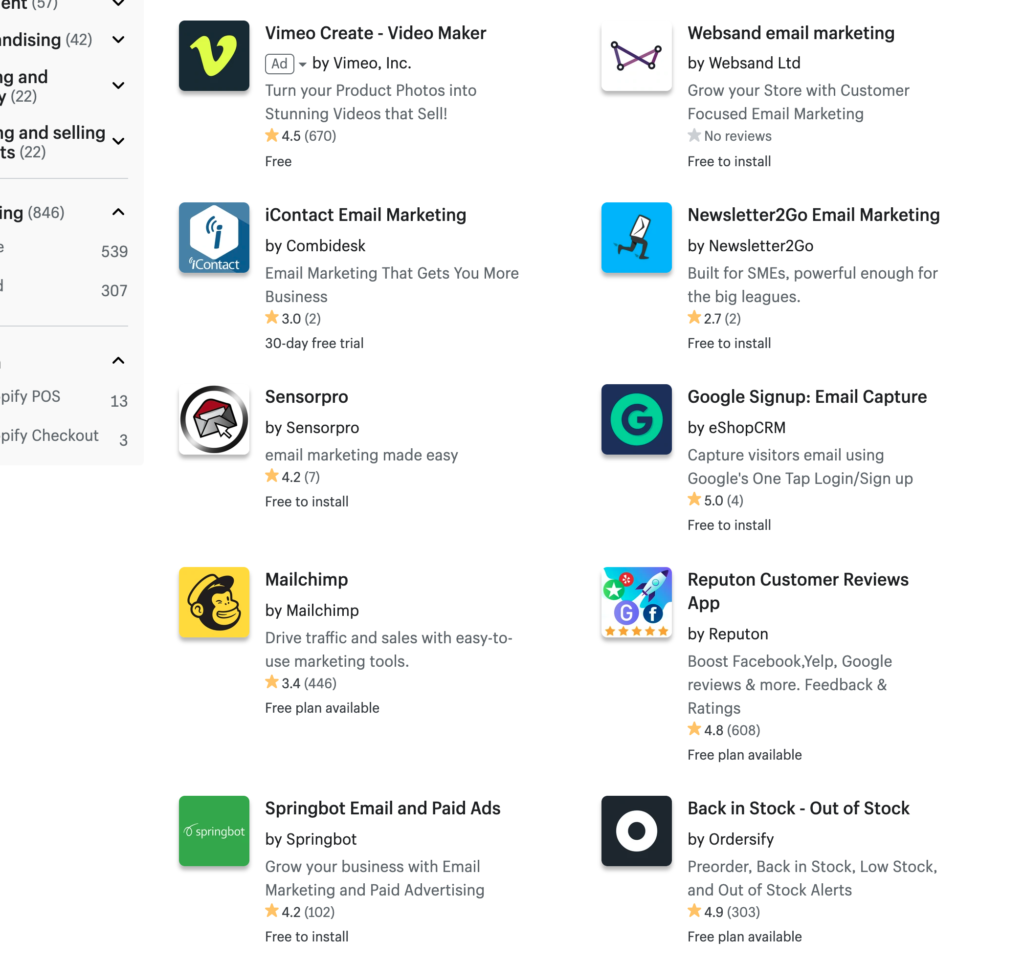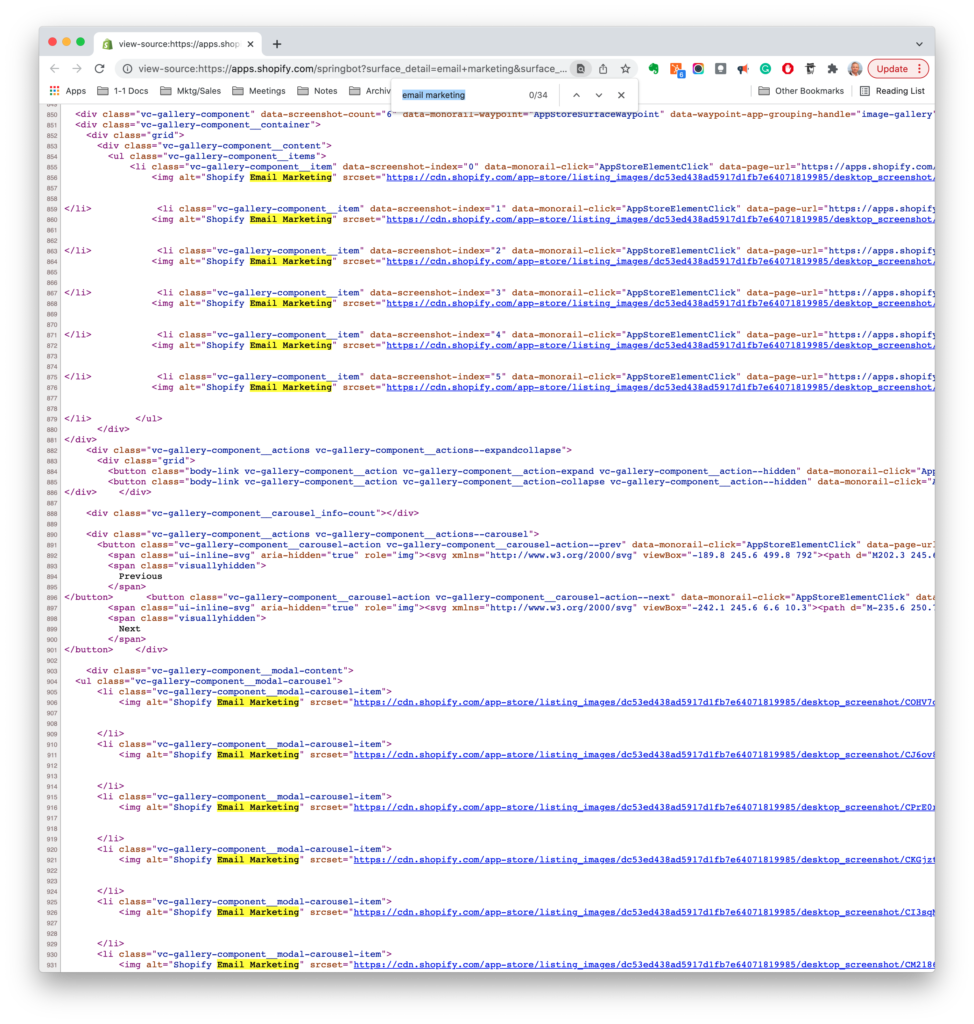Shopify App Store SEO – A Quick and Dirty Guide to (App Store Optimization)
January 31st, 2022 by
Key Insights
- Don’t Suck: Running your app store business with the same considerations as a real-world business can go a long way toward good Shopify App Store SEO.
- Think Like an SEO: SEO at its core is straightforward: keywords, content, and links.
- Write for the User, Mostly: What’s best in life is conversions, acquisition, sales, whatever you call the victory condition.
Don’t let your app’s performance on the Shopify App Store keep you up at night.
Shopify App Store SEO or ASO “App Store Optimization” doesn’t have to be rocket science. In fact, my quick review of the top-ranked articles in Google shows it’s just good old-fashioned SEO.
The proof, as they say, will be in the pudding. But, we’ll have to wait a bit for that.
So here’s the story. My Strava and Facebook friend and once and future client, Matt, reached out with a question. “Why are we on the third page of the Shopify App Store for our primary search term?”
That search term is “email marketing” on the Shopify App Store, but on Google, one would likely need to search for “Shopify email marketing.”
Shopify is the leading software platform for online stores and offers third party tools on their app store for anyone who doesn’t know.
A Shopify Store is super simple to set up, and there are a ton of app developers and designers ready to provide a solution if what you need isn’t available right out of the box.
At Search Influence, we don’t do a ton of e-commerce marketing, but we have had a few clients in the space with relative success. E-commerce is an area where our Online Ads team, in particular has interest in digging deeper.
In general, the same rules apply for most app store optimization as with search engines. The nuances depend on the platform (Apple App Store, Google Play Store, Amazon, etc.) and mileage may vary. However, thinking of ASO issues as SEO issues makes a big difference.
Don’t Suck
Mike Blumenthal, known to the Local Search community as “Professor Maps,” says the first rule to getting good reviews is “don’t suck.”
As it turns out, this is also true in App Store SEO.
Running your app store business with the same considerations as a real-world business can go a long way toward good Shopify App Store SEO.
This article on the Shopify blog outlines best practices for success on the Shopify Web Store and discusses how you might get penalized. Many of these are similar to Local SEO and review optimization and a couple of items specific to Shopify App Store Optimization (ASO).
On the Shopify App Store, you can get penalized for:
- Poor support: i.e., failing to respond to Shopify merchants in a timely fashion or in a professional manner. Your support of your Shopify App users is similar to the importance of user sentiment in ranking in online review sites, which is a thing in Local SEO.
- Frequent bugs and crashes: In other words: Is your app working? Does it do what you say it will?
- Incentivizing reviews or fake reviews: Shopify indicates they’ll take “strict punitive action” if they discover fake reviews. In Local SEO, this is a mixed bag, right? Yelp hammers fake reviews and many legitimate reviews from folks who aren’t “good Yelpers,” but Google takes a much more laissez-faire approach.
- Any violation of the Shopify Partner Program Agreement.
Think Like an SEO
Anyone who has spoken with me about SEO has heard me say that SEO at its core is straightforward: keywords, content, and links.
- Keywords: What are people searching for when the answer should be your offering?
- Content: Does your site’s content demonstrate you as a trusted resource for that offering?
- Links: Do other sites reinforce your relevance and authority for those search terms by linking to you?
Like so many other things, simple doesn’t always mean not easy.
There are some artificial constraints in the case of a listings database like the Shopify App Store. There are restrictions on title, description, and page content, just like SEO.
- The length of your app name
- The icon you can use
- The constraints on your app listing content
The Shopify requirements for public apps details what you should and shouldn’t do with your listing.
That said, your app name (equivalent to the title for Shopify App Store SEO) can only be 30 characters. This is a pretty darn tight constraint.
So, back to SEO basics, what do we need to be thinking about for Shopify ASO?
1. Keywords: What are the humans who want what you have to offer typing into the Shopify App Store search box?
Like website SEO, in Shopify App Store SEO, you need to have a clear idea of people’s search terms.
You can get some clues from the existing categories in the Shopify App Store. You can look at the categories for ideas and then validate that with traditional keyword research. If your best keyword matches a category, that makes life much easier.
Notice how many of the apps on page one of the Shopify App Store search results for “email marketing” have email marketing in their app name.
But on page 3, you’ll notice most don’t have “email marketing” in their app name.
Even industry giant Mailchimp is on page three—at the time of this writing, right above Springbot.
So, how do you do keyword research? Tools! You need tools.
- Google AdWords Keyword Planner. You need an account but don’t need to buy ads.
- SEMrush or ahrefs. These are Swiss Army knife SEO tools with WAY more features than keyword research and well worth the money if SEO or Shopify App Store optimization is important to your e-commerce business.
- Answer The Public. This is a robust tool, but the feature most of us use is the ability to generate questions that might be searched for about a given topic.
2. Get those keywords in your content!
The most powerful place to get a keyword for SEO is your page title < title >. It’s also beneficial to have it in your page description—not so much for SEO, but for user experience.
When optimizing your app store listing, the app name serves as your title tag. It will be what shows up in the app store search results. If possible and natural, include your keyword here. Keep in mind that you only get 30 characters.
Like with meta descriptions and other meta tags in website SEO, including your keywords in your Shopify app tagline makes an impression on humans and may affect the Shopify App Store SEO factors.
You can also add keywords with the images you upload of your app. As with good website design, consider the user and make these descriptions actually represent what’s in the image. Don’t make all of your image descriptions, which render in HTML as text (or alt tags), your most important keyword if you can avoid it.
While we’re looking at source code, this is a great way to diagnose if you discover you have a broken link.
3. You built it; you uploaded it, now link to it!
It is entirely natural for you to link to your app on the Spotify App Store. Opportunities for links:
- Link to it from your website.
- Make a promotional video and link to it from your YouTube channel.
- Go guest blog somewhere and link to it.
- Share it on your social media channels.
- Tell your friends
- Include it in ads, if you can
Shopify App Store optimization isn’t one-size-fits-all. Look for links in all the usual places.
Shopify does sell ads on the Shopify App Store, but organic traffic is the gift that keeps on giving.
And if you want hard data, it does appear you can track your Shopify app listing with Google Analytics. If you’re serious about selling online, this seems like a must.
Aside: While I haven’t dug in, it appears that App Store Analytics either integrates or has functionality similar to Google Search Console.
Write for the User, Mostly
In the movie Conan the Barbarian, the main character, played by a young Arnold Schwarzenegger, is asked by a Mongol general, “What is best in life?” To which Conan replies, “To crush your enemies, to see them driven before you, and to hear the lamentations of their women.”
I think we can all agree it’s best not to be a barbarian.
And, in the world of e-commerce and online marketing, that’s not really what’s best in life.
What’s best in life is conversions, acquisition, sales, whatever you call the victory condition.
What that means is:
- Be a storyteller
- Help your customers understand how you solve their problems
- Write good marketing copy
Consider whether the language you use communicates authority and trustworthiness.
Bringing It All Together
Shopify App Store optimization is SEO. The format is more constraining, but sometimes constraints spark creativity.
Think about the exact keywords your customer would use to find you.
Make sure your content speaks to what your customers are searching for and supports their position in the buyer’s journey.
Be a human—a human telling a story to other humans of why they need your help.
Finally, think about how you can quantify your ASO efforts. Any good SEO knows that you can’t just load the search engine results page and be confident you’re seeing the same thing your users do. From a quick review, it looks like the tools from App Store Analytics may be helpful.
And if you need help, contact Search Influence. Since before most people could spell it, we’ve been doing SEO, and I’m confident the same rules apply. And, of course, you’d make our Digital Advertising Manager, Jeanne, happy if you let us run some ads too.
Happy selling!
Images:
Barbarian meme






